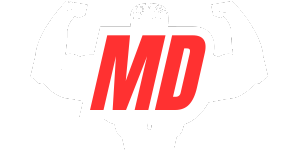Sleep is an important but often overlooked component of muscle recovery and growth. Though bodybuilding training and nutrition are important, sleep is also important for muscle repair and regeneration. Poor sleep may affect performance, muscle gains, and injury risk.
Understanding sleep science and implementing sleep strategies may improve recovery and performance.
How Sleep Supports Muscle Recovery & Growth
Muscle repair occurs during deep sleep and REM sleep. Most growth hormones are released in deep sleep, which then supports cognitive function and nervous system recovery for strength training.
The production of testosterone also rises during sleep to promote muscle growth and strength. Low testosterone levels and muscle protein synthesis may also reduce gains and prolong recovery times.
Optimal Sleep Duration for Bodybuilders
Due to the increased demands of intense training, bodybuilders generally require more sleep than the average person. Seven to nine hours of sleep per night is ideal for most athletes, with some needing even more depending on their training intensity.
While oversleeping is rare, excessive sleep can sometimes lead to grogginess and reduced motivation. The key is to find an optimal balance based on individual training schedules and recovery needs.

Creating the Best Sleep Environment for Recovery
A cool, dark, and quiet bedroom can significantly improve sleep quality. The ideal room temperature for sleep is between 60-67°F (16- 19°C), as lower temperatures promote deep sleep.
A supportive mattress and pillows tailored to body type and sleeping position help prevent discomfort and enhance spinal alignment. Reducing noise and eliminating artificial light, especially from screens, further improves sleep depth and efficiency.
Pre-Bedtime Routine for Maximum Recovery
Proper food selection before bedtime may promote better sleep and muscle recovery.
Slow-digesting proteins like casein prevent muscle breakdown overnight. Avoiding stimulants like caffeine and pre-workout supplements six hours before bedtime helps with sleep.
Relaxation techniques like meditation, deep breathing, and light stretching lower stress and prepare the body for restorative sleep. Calming activities before bedtime signal the brain to wind down.
Supplements That Improve Sleep & Muscle Repair
Some supplements improve sleep quality and muscle recovery. Magnesium and ZMA (zinc, magnesium, and vitamin B6) promote relaxation & sleep. Melatonin may regulate sleep cycles, especially for irregular sleepers.
L-theanine and glycine relax muscles and reduce stress for better sleep. Nighttime protein suppléments such as casein protein provide an extended supply of amino acids for muscle repair throughout the night.

Managing Stress & Cortisol for Better Sleep
High stress levels can disrupt sleep cycles and hinder muscle recovery. When elevated for prolonged periods, cortisol, a hormone released in response to stress, can break down muscle tissue.
Managing stress through mindfulness, proper workload management, and pre-bed relaxation techniques can help lower cortisol levels. Avoiding excessive training without adequate recovery also prevents cortisol spikes that interfere with sleep quality.
The Science of Sleep Cycles & Recovery
Sleep occurs in light sleep, deep sleep, and REM sleep. Each stage helps with recovery, with deep sleep being most important for muscle repair and growth.
Sleep patterns could be tuned to training schedules. Sleeping at consistent times and awakening naturally without an alarm may improve sleep quality. Napping for 20-30 minutes throughout the day helps with recovery without disturbing nighttime sleep.
Common Sleep Mistakes That Hurt Muscle Gains
Using electronic screens before sleeping exposes the eyes to blue light, suppressing melatonin production and delaying sleep onset. Bedtime screen time could help with sleep.
Overtraining without rest can disrupt sleep, fatigue and muscle breakdown. For long-term progress, training intensity must balance recovery time.
Huge meals eaten just before bedtime may cause gastric upset and disrupt sleep. Take two hours between eating and sleeping to digest food and rest properly.

Frequently Asked Questions
How does sleep impact muscle recovery and growth?
Sleep is when the body repairs and rebuilds muscle tissue. Deep sleep promotes growth hormone release, while REM sleep supports cognitive and nervous system recovery.
What are the best nighttime habits for bodybuilders?
Maintaining a consistent sleep schedule, avoiding stimulants, optimizing the sleep environment, and engaging in relaxation techniques before bed can improve sleep quality.
Can poor sleep ruin muscle gains?
Yes, inadequate sleep can lower testosterone levels, increase cortisol, and impair muscle protein synthesis, leading to slower recovery and reduced gains.



